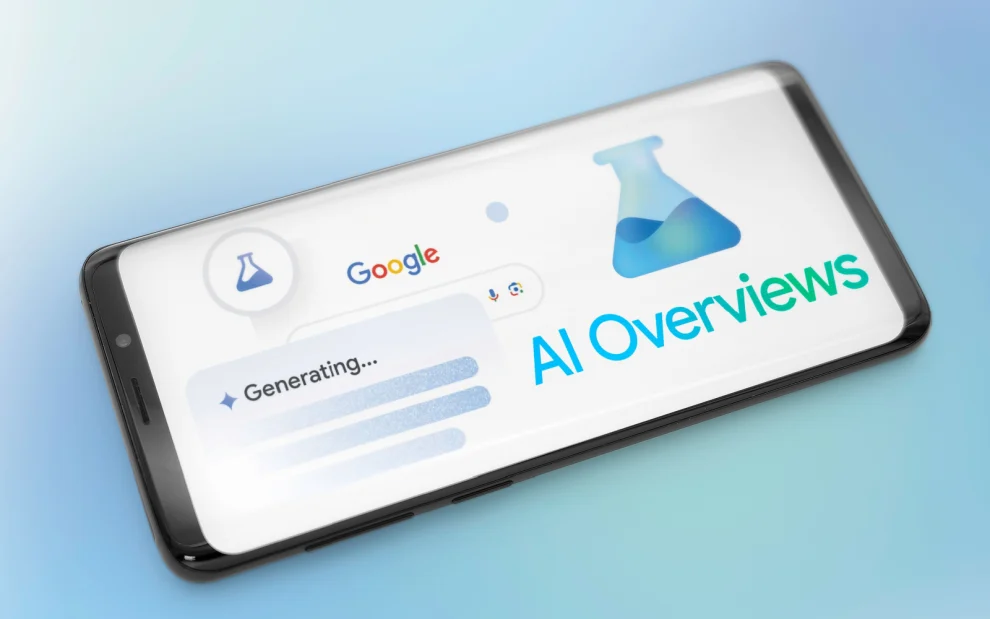Google introduces AI Overview ads for mobile users in the U.S., revolutionizing digital advertising. Learn how these ads work and their potential impact on advertisers and users.
In a move that’s set to reshape the landscape of digital advertising, Google has officially launched its highly anticipated AI Overview ads for mobile users across the United States. As I stood among a throng of excited marketers and tech enthusiasts at Google’s headquarters in Mountain View, California on October 3, 2024, the air was electric with anticipation for this groundbreaking announcement.
A New Era of AI-Powered Advertising
Google’s AI Overview ads represent a significant leap forward in the integration of artificial intelligence and digital marketing. These ads will appear directly beneath the organic AI-generated answers in Google’s search results, offering users a seamless transition from information to action.
“We’re not just changing how ads appear; we’re revolutionizing how users interact with commercial content,” explained Sarah Chen, Google’s Head of AI Advertising, as she unveiled the new format to the eager crowd.
The Anatomy of AI Overview Ads
As Chen demonstrated the new ad format on a large screen, the audience leaned forward, eager to see how these ads would look in practice. The ads appear under a clear “Sponsored” label, resembling typical Shopping ads but strategically placed within the AI-generated content.
“Our goal is to make these ads feel like a natural extension of the user’s search journey,” Chen emphasized. “We want to provide relevant commercial options without disrupting the flow of information.”
When and Where AI Overview Ads Appear
One of the most pressing questions on everyone’s minds was when and where these new ads would show up. Google has been clear that the ads will only appear for queries with a commercial angle.
John Smith, a Google spokesperson, elaborated on this point: “If a user’s question has a commercial element – something where a product or service could be relevant – then an ad may appear above, below, or within the AI-generated response.
To illustrate this, Chen provided a practical example: “Let’s say you ask, ‘How do I get a grass stain out of jeans?’ The AI Overview will provide various solutions, from household remedies to commercial stain removers. Relevant Shopping ads will appear right within this overview, allowing users to quickly find the perfect product without needing another search.”

Seamless Integration for Advertisers
Perhaps the most surprising aspect of this rollout is the ease with which advertisers can participate. According to Google, no additional action is required from advertisers for their ads to appear in AI Overviews.
“Your existing AI-powered Search ads, Shopping, and Performance Max campaigns are already eligible to show in these new placements,” Chen explained, much to the relief of many marketers in the room.
However, this simplicity comes with a catch. Google currently isn’t offering segmented reporting for ads shown in AI Overviews. This lack of transparency raised concerns among some attendees.
How can we optimize our campaigns if we can’t see specific performance data for these placements?” questioned Lisa Wong, a digital marketing strategist attending the event.
In response, Google representatives advised advertisers to consult their Search Terms Report as usual, but acknowledged that more detailed reporting options may be considered in the future based on advertiser feedback.
The Implications for Advertisers and Users
As the presentation concluded, discussions erupted throughout the auditorium about the potential impact of this new ad format. While many saw it as an exciting opportunity, others expressed concerns about ad visibility and performance.
Mark Johnson, CEO of a prominent e-commerce platform, shared his thoughts: “Being able to showcase our products within AI-generated content could be huge for us. But I’m worried about the positioning. Will users even scroll down to see our ads after reading the AI answer?”
On the flip side, consumer advocates in attendance raised questions about the user experience. We need to ensure that the line between organic content and advertising remains clear,” stated Emma Thompson, a digital rights activist. “Users should always know when they’re being marketed to.”
Google maintains that these ads will enhance the user experience by providing relevant commercial options alongside helpful information. However, the company has not provided any concrete data to support this claim, leaving some skeptical.
No Opt-Out Option for Advertisers
In a move that raised eyebrows among some attendees, Google confirmed that advertisers cannot opt out of having their ads appear in AI Overviews. When pressed on this decision, a Google spokesperson stated, “We’ll continue listening to feedback from advertisers and consumers to learn how Ads in AI Overviews can be helpful in people’s information-seeking journeys.”
This lack of choice has led to mixed reactions from the advertising community. While some see it as an opportunity to reach users in a new context, others worry about the potential impact on their brand if their ads appear alongside AI-generated content they can’t control.
As the event wound down, it was clear that Google’s AI Overview ads represent more than just a new ad format – they signal a fundamental shift in how digital advertising integrates with AI-generated content.
The success of this new format will likely depend on how well Google can balance the needs of advertisers with the user experience. As AI continues to play a larger role in search results, advertisers will need to adapt their strategies to this new landscape.
While questions remain about reporting transparency and the effectiveness of ad placement, there’s no doubt that AI Overview ads have the potential to reshape the digital advertising landscape. As marketers and users alike begin to interact with this new format, the true impact of Google’s latest innovation will become clearer.
















Add Comment